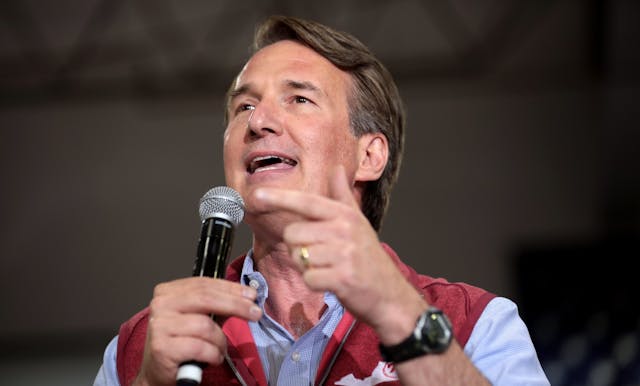FCC Rule Goes into Effect, Increases Ad Transparency Before Midterms

On July 1, 2014, part of a 2012 Federal Communications Commission (FCC) rule became active that will make it easier for voters to know who is paying for political TV advertisements.
In April 2012, the FCC decided in a 2-1 vote to require the four biggest broadcast networks -- ABC, CBS, NBC, and Fox -- to make public their contracts with purchasers of ad time. Since August 2012, the FCC has run a website that allows viewers to search these purchases by network and to view contract information, including who purchased the spot, its cost, and how often it will run.
Initially, the rule applied only to affiliates of the "Big Four" in the 50 largest media markets, which aired approximately 60 percent of the nation's total ads.
In 2012, advertisers spent $3.1 billion to run political ads on local TV stations.
As of July 1, 2014, however, every station -- large and small -- from the nation's 210 media markets must now disclose its ad files, expanding the number of affiliates that must comply from roughly 230 in 2012 to over 2,000 now.These recent disclosures reveal that advertising activity for the 2014 midterm elections is already well underway across the country -- especially by Super PACs and other outside groups -- in states and media markets where such ad files were previously more difficult to obtain.
In Louisiana, for instance, a conservative 501(c)(4) group named Generation Opportunity has already spent more than $50,000 to purchase 183 ads in the Lake Charles, Lafayette, and New Orleans markets. Generation Opportunity has raised millions of dollars -- the bulk of its funding -- from groups related to the Koch brothers and ran advertisements in 2013 featuring a large and creepy Uncle Sam that were meant to discourage young adults from enrolling in the health care exchanges.
Also, Senate Majority PAC has spent over $35,000 to purchase 107 spots in the state to help incumbent Mary Landrieu (D-LA) defend her seat.
The new disclosure rules show that outside groups have also already scheduled ad spots in other states with highly contested congressional seats.
The availability of these ad files makes it easier to enforce existing campaign finance regulations, which have been greatly altered in recent elections since the Citizens United case in 2010.
The 2010 decision led to the formation of Super PACs, which are independent groups that can raise and spend unlimited amounts of money to influence elections so long as they do not directly coordinate with candidates. However, these groups must disclose their donors and their spending, such as what they spent on issue ads or "electioneering communications."
Other organizations that may purchase TV ads are tax-exempt 501(c) groups, the most politically active of which are 501(c)(4)s.
Organizations in this class are registered with the IRS as "social welfare" groups and may not make political activism their primary focus. These 501(c)(4) groups may raise and spend unlimited amounts of money so long as their political expenditures do not account for more than half of their total spending, and they are not required to disclose their donors.Many politically active organizations often maintain two distinct operations -- one Super PAC and one 501(c) entity -- in order to maximize their spending capabilities while withholding information about the sources of their fundraising.
One such group is Karl Rove's Crossroads organization, which is represented by two related entities: Crossroads GPS, a 501(c)(4), and American Crossroads, a Super PAC.
The shell game works like this: a group may raise millions of dollars through its non-profit, tax-exempt organization and then transfer that money to its related Super PAC -- some of which share the same address or PO Box. When the Super PAC opens its books, rather than revealing the names and amounts of individual contributors, one sees the bloc contribution from the non-disclosing 501(c) entity, effectively withholding the names of donors from view.
As one lawyer from the nonpartisan Campaign Legal Center put it:
“The Supreme Court in Citizens United unleashed a flood of special interest money in politics, but promised voters that there would be disclosure…In 2012, we have the flood of money, but we don’t have the disclosure.”
The FCC rule mandating that broadcasters disclose their sources of revenue from political advertisers online is expected to increase accountability.
The 2002 McCain-Feingold campaign finance reform required broadcasters to keep track of any ad considered a "political matter of national importance." If an ad met this standard, the broadcaster had to indicate the name of the candidate being featured, the office being contested, or the issue being discussed.However, when the Sunlight Foundation, a democracy watchdog group, took a random sample of 200 ad files, it found that many filers failed to properly disclose the name of the candidate or election. Now that citizens can view these files easily and report omissions, there will be a greater incentive for full compliance.
The mandate is also expected to encourage transparency.
Before the FCC's 2012 rule, citizens who wanted to know about a station's ad revenue had to visit the station in person and request to see their paper documents. Volunteers shared their findings through searchable online databases such as Political Ad Sleuth.
TV viewers now have a simpler way to identify which groups are purchasing ads in their home towns and how much they are spending -- a major boon to citizens in the post-Citizens United environment.
Photo Credit: Flickr / Federal Communications Commission



